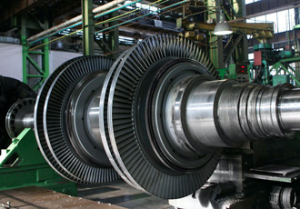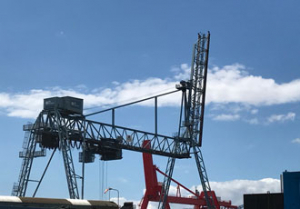igus takes step towards green bearings
19th October 2011
Source:
igus UK Limited

Polymer researcher and bearings specialist igus UK has developed a plain bearing material that is based on 54 percent sustainable and natural raw materials. The basic polymer of the new iglidur N54 plain bearing is mainly made of castor oil, rather than finite crude oil. The company’s mechanically and tribologically optimised biopolymer is suitable for universal use in the low-load range.
“The introduction of our iglidur N54 biopolymer marks the first serious step towards ‘green bearings’,” says Matt Aldridge of igus UK. “The biopolymer is made from crop oil instead of crude oil – you can’t eat it and it’s not biodegradable – but it is an industry first for a technical polymer.”
As with all igus iglidur polymers, iglidur N54 is a high-performance tribological plastic material that is both lubricant and maintenance free. In-house test results indicate excellent wear resistance properties with loads up to 2 MPa, thus a green alternative for general purpose, low-load applications. As well as general industrial applications, igus sees possibilities for the biopolymer in consumer goods, for example furniture and other items of daily use.
Ecological advantage of polymer bearings
The new bio-bearing fits well within the igus concept of developing environmentally-friendly alternatives for applications that currently work with lubricated metallic plain or roller bearings. iglidur N54 bearings help to not only protect our natural resources, they are self-lubricating so kinder to the environment.
iglidur bearings do not require any oil and grease, are lubricant and maintenance-free, which means no contaminants are released to the environment. In addition, they have a low weight in comparison to metallic options, leading to lower masses and thus reduced energy consumption. Furthermore, the energy balance for the production of plastics is significantly better than for metals.
Industry analysts expect this value to fall even further on account of the major progress currently being made in the field of biopolymers. According to the European Bioplastics association the production capacity for biopolymers is expected to rise from around 700,000 tonnes in 2010 to about 1.7 million tonnes by 2015.
As with all igus iglidur polymers, iglidur N54 is a high-performance tribological plastic material that is both lubricant and maintenance free. In-house test results indicate excellent wear resistance properties with loads up to 2 MPa, thus a green alternative for general purpose, low-load applications. As well as general industrial applications, igus sees possibilities for the biopolymer in consumer goods, for example furniture and other items of daily use.
Ecological advantage of polymer bearings
The new bio-bearing fits well within the igus concept of developing environmentally-friendly alternatives for applications that currently work with lubricated metallic plain or roller bearings. iglidur N54 bearings help to not only protect our natural resources, they are self-lubricating so kinder to the environment.
iglidur bearings do not require any oil and grease, are lubricant and maintenance-free, which means no contaminants are released to the environment. In addition, they have a low weight in comparison to metallic options, leading to lower masses and thus reduced energy consumption. Furthermore, the energy balance for the production of plastics is significantly better than for metals.
Industry analysts expect this value to fall even further on account of the major progress currently being made in the field of biopolymers. According to the European Bioplastics association the production capacity for biopolymers is expected to rise from around 700,000 tonnes in 2010 to about 1.7 million tonnes by 2015.
Similar articles
More from igus UK Limited
- From garage business to world leader: igus founders celebrate 90th birthday 22nd June 2021
- VOTW - Metal out plastic in! 10th June 2021
- igus robot works alongside agri-tech startup 18th May 2021
- Tribo-polymers increase machine service life and efficiency 10th May 2021
Product Centre Updates
2024 World Battery & Energy Storage Industry Expo (WBE)
8th August 2024
China 1st and 2nd Floor, Area A, China Import and Export Fair Complex

-(1)ed.jpg)










Write a comment
No comments